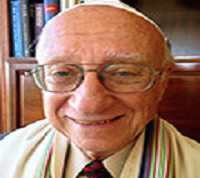[symple_box color=”blue” text_align=”left” width=”100%” float=”none”]  Maha Tazi is a graduate in International Relations and Middle Eastern Politics from the University of Wollongong in Dubai (UOWD). She is currently working as a Project Consultant in Public Relations and Corporate Communications at APCO Worldwide and teaching part-time as an adjunct instructor in Philosophy at UOWD. Maha has a special interest in world affairs and gender issues. She took a Women Studies course for one year at Sciences Po Paris and worked with several civil society organizations that struggle for the advancement of women’s rights including Association Solidarite Feminine (ASF) in Morocco. [/symple_box]
Maha Tazi is a graduate in International Relations and Middle Eastern Politics from the University of Wollongong in Dubai (UOWD). She is currently working as a Project Consultant in Public Relations and Corporate Communications at APCO Worldwide and teaching part-time as an adjunct instructor in Philosophy at UOWD. Maha has a special interest in world affairs and gender issues. She took a Women Studies course for one year at Sciences Po Paris and worked with several civil society organizations that struggle for the advancement of women’s rights including Association Solidarite Feminine (ASF) in Morocco. [/symple_box]
Dubai, UAE—When the recent Charlie Hebdo events hit last January, I first refused to give it a thought, a word, or a reflection. I pretended to be listening to people while I wasn’t; I even refused to hear my inner voice. Somewhere deep inside I knew it was going to be about a mainstream dualistic discourse of West vs. East, Veiled vs. Unveiled, Muslims vs. the rest; and apparently I wasn’t wrong.
I always wonder why people like to think in binary, minimalistic terms; it somehow engenders a feeling of disgust and revolt inside me. With a sister defending ‘freedom of speech’ at all cost, and a close relative fiercely condemning the victims’ offence in the first place, there was no need to go to the streets to sense that binary thinking was literally, everywhere.
Binary was haunting. It was creating a feel of anxiety, a feeling of heaviness and foulness …
To avoid the traps of dualistic thinking while reflecting on the sad events, we should rather ask ourselves the following questions: when, in the tragic history of mankind, did the use of violence and physical force for peaceful ideals ever solved anything? But at the same time, when has offense in the name of freedom ever been constructive or even legitimate? And, when did freedom of speech cease to be ‘freedom’ as such and become a threat to freedom of conscience and a pretext to divide between people? Psychological and physical violence are not of different nature, for they both bring about revolt and indignation, and the use of one should not legitimize the resort to the other.
However, the reason why people choose to stick to binary/dualistic thinking has it that it creates a fake feeling of comfort, security and convenience: Wherever there is ‘good’ and ‘bad’, people can easily identify with the ‘good’ and own it. The truth is that things are often more complicated than that.
There is good and bad in each and every one of us; the degree to which we let light -or darkness- shine out of us is totally up to us. However, as the saying goes, ‘it’s easy to be hard’ and we would tend to choose to go for the hard way: we condemn, we denounce, we insult before trying to listen, understand, or empathize.
We insist on spotting the tiny differences, the smallest points of divergence, instead of witnessing the greater cause and noble project which unites us all and stands above everything – that is Humanity.
We, in fact, are much more tied by our humanity than we are divided by anything else. But why are we constantly running away from that? Are we following other people’s agendas or are we afraid from our own nature?
How do we choose to open our eyes on certain realities and utterly disregard greater ones? What kind of conditioning is happening here? Are we the victims of our time or the victims of ourselves?
As Bob Marley once said that: “We should emancipate ourselves from mental slavery”. Let us free ourselves from all the classifications, divisions, categories and limitations in which we deliberately put ourselves and find a safe but traitor refuge, for we shall never be totally free without full accountability and moral responsibility.
This article first appeared on The Sociolog Magazine.





